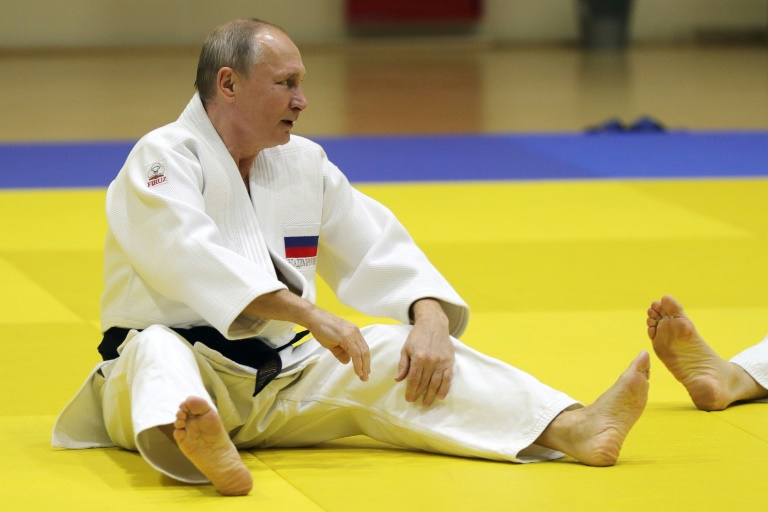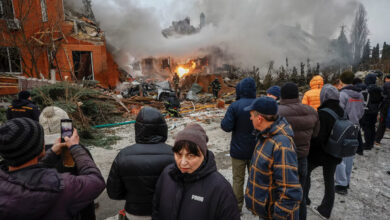
Russian President Vladimir Putin will deliver his annual state of the nation address on Wednesday as he faces an unprecedented fall in his approval ratings.
It will be the 66-year-old leader’s first address to both houses of parliament since he was elected to a fourth presidential term a year ago, extending his long rule until 2024.
Last year, Putin used the address to unveil a new arsenal of weapons in a nearly two-hour speech that stunned the West and many in Russia.
Speaking two weeks before his re-election, Putin promised Russians higher standards of living and hailed Moscow’s military might as relations with the West reached post-Cold War lows.
After the speech he enjoyed his highest approval rating since he came to power in 1999.
But a year on, Putin has seen his popularity slide against a backdrop of economic problems.
A hugely unpopular reform raising the retirement age that Putin signed into law in October led to a major dip in his support.
A survey by Russia’s independent Levada Center released in January found his approval rating at 64 percent, the lowest since before Moscow’s annexation of Crimea five years ago.
Another Levada poll in October found only 40 percent of Russians would vote for Putin if an election were held.
Political analyst Aleksey Mukhin predicts Putin’s speech this year will focus primarily on “internal politics and the economy,” which has suffered since it was hit with Western sanctions in 2014 over Moscow’s role in the Ukraine conflict.
‘Positive topics’
According to a high-ranked source quoted by Russian television channel Dozhd, the bulk of Putin’s speech will be dedicated to “positive topics” that “people can relate to”.
The source said foreign policy will be of secondary importance in the speech and instead Putin will focus on issues such as Russia’s space programme and finding solutions to the country’s problems with waste removal.
Analyst Dmitry Orlov said Putin would likely warn of “external threats” Russia faces.
In terms of foreign policy, Orlov said Putin would focus on the US withdrawal from a key arms control treaty between Moscow and Washington.
Earlier this month Russia and the United States suspended their participation of the 1987
(INF) treaty, mutually accusing each other of violating the deal.
According to Mukhin, Putin is also likely to cover the crisis in Venezuela, where Moscow has accused the West of “destructive interference” and stood by its ally President Nicolas Maduro.
The Russian leader may mention the success of his Syrian ally President Bashar al-Assad in recapturing most of the country’s territory from rebels and jihadists thanks to the support of the Russian army, Mukhin added.




